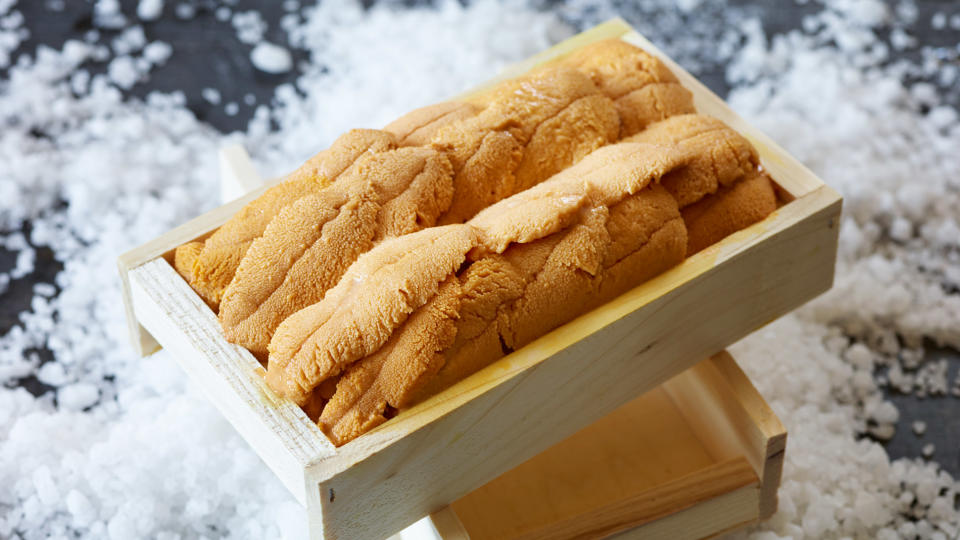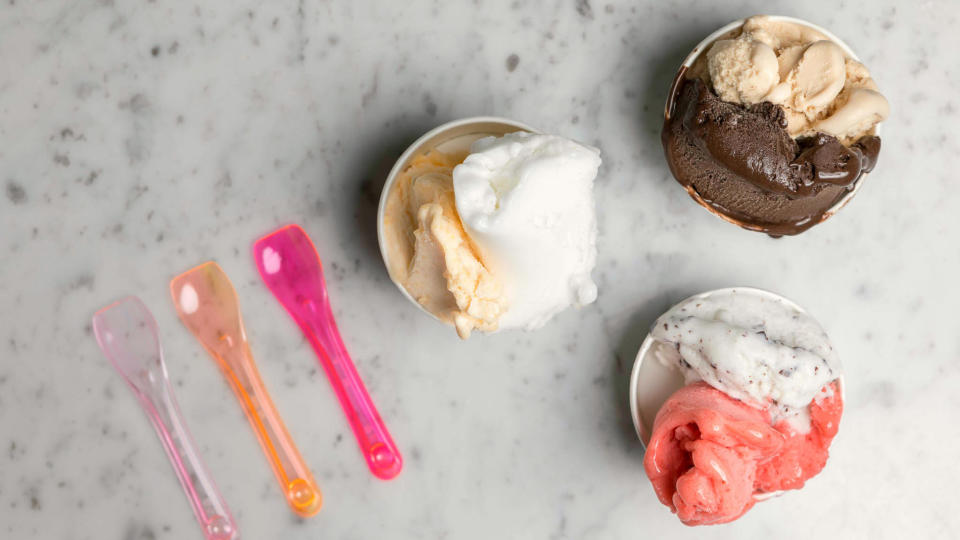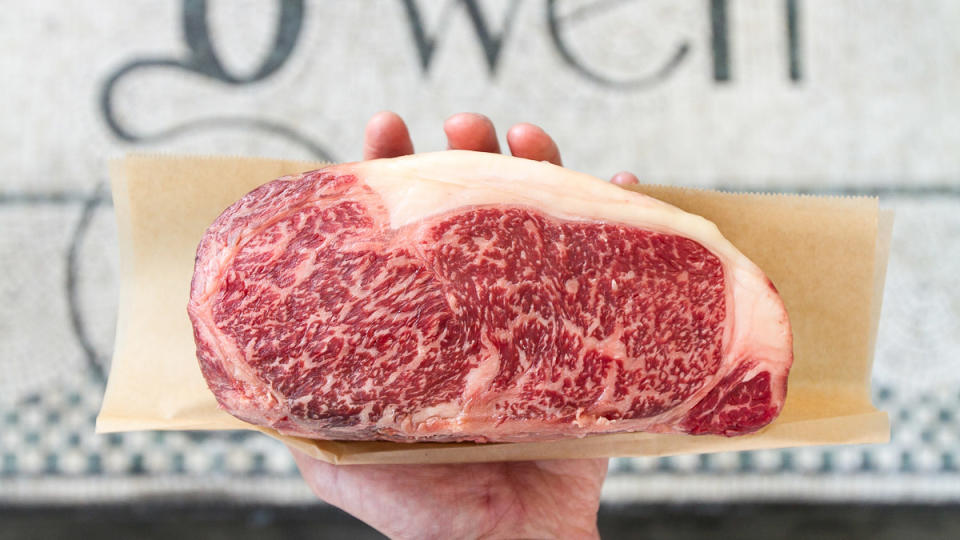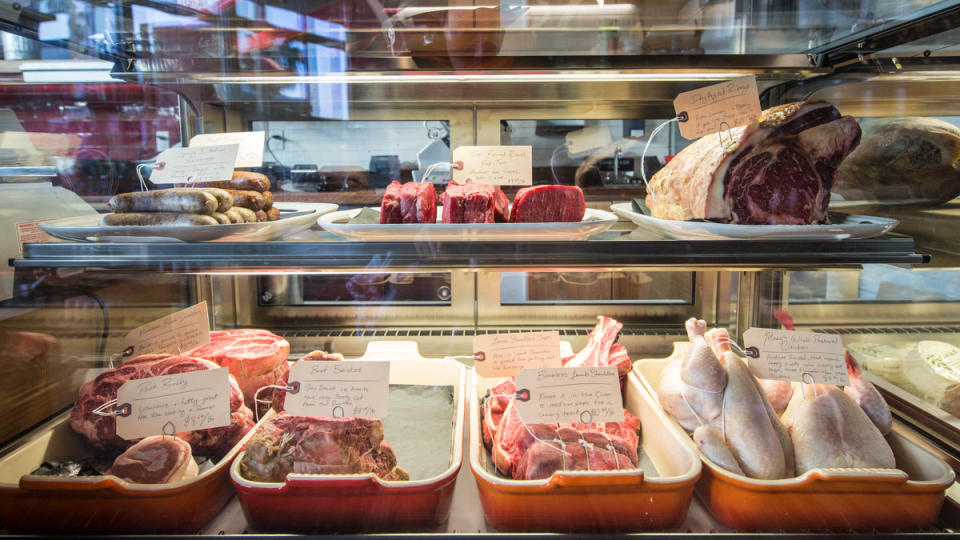L.A.'s Best New Chef-Driven Markets
You might not quite have the knife skills, creativity or swagger of your favorite chef, but you can at least have the exact same ingredients if you live in Los Angeles.
Chef-driven markets, often attached to restaurants, are opening all over the city. And the trend is gaining steam: Later this year, Mario Batali will bring Eataly to Century City and Chad Robertson, Elisabeth Prueitt and Chris Bianco will open Tartine Manufactory downtown.
"What we have going for us is in-house chefs," says Francis Derby of The Cannibal, a restaurant and butcher shop in Culver City. "When you ask your butcher at The Cannibal what to do with a short rib, you're asking a chef. I could give you probably a hundred answers. There is very much an education side, that's the cool part about what we offer. You're getting real advice."
Here are four new markets for anyone seeking great food and delicious lessons:
Cape Seafood and Provisions

© Pornchai Mittongtare
On any given day at chef Michael Cimarusti's Cape Seafood and Provisions on Fairfax Avenue, you might find California rock crab, spot prawns, uni and even vermilion rockfish (which is very hard to find elsewhere). You might walk out with Maine lobsters, Cimarusti's own branded caviar and a tomahawk steak for the ultimate surf-and-turf feast—along with vegetables that Cape Seafood brought in from the famed Santa Monica Farmers Market.
On my last visit to Cape, Cimarusti, the man who's also behind Providence and Connie and Ted's and is widely known as the best seafood chef in Los Angeles, took me behind the counter and showed me big striped bass from Virginia, porgies from New York and monkfish and albacore from New Jersey.
But if you come in looking for branzino, you're out of luck.
"The biggest thing, especially when it comes to fin fish here at Cape, is we don't sell any farm-raised fish," says Cimarusti, who doesn't carry anything that's not green- or yellow-rated by the Monterey Bay Aquarium. "We get guests all the time that are looking for branzino. We just tell them, 'Look, we don't have that, but if you're looking for a nice whole fish you can cook at home, why don't you try a porgy?' It's wild, it's going to have better flavor, it was not farm-raised, it was not treated with antibiotics, and it didn't grow up eating grains all its life. It's actually going to taste like a fish."
Cimarusti believes strongly in serving better fish, but he tells his Cape Seafood crew "not to get preachy about it." Instead, the friendly, laid-back staff share cooking tips and explain what they love about certain fish.
"I really enjoy the interaction I have with people that are looking for a little bit of advice," says Cimarusti, who's encountered customers who don't realize that the bearded guy telling them how to cook a porgy might just know how to cook a porgy better than anyone else in the world. "In a lot of cases, I'm just the guy behind the counter, which I'm totally cool with. Had I done this first in my career, I might never have gone into restaurants because I really enjoy being in this setting. There's something charming about being a shopkeeper."
But there's also a lot of cooking at Cape, where culinary director Brandon Gray (formerly of Providence) oversees grab-and-go selections like fish tacos, peekytoe crab rolls, barbecue swordfish sliders, crab cake sandwiches, lobster bisque and wild king salmon bagels.
Angelini Alimentari

© Jakob Layman
"We decided to open Angelini Alimentari to bring a classic Italian coffee bar and gelateria to the Los Angeles food scene," says chef Gino Angelini, who also runs legendary restaurant Angelini Osteria next door on Beverly Boulevard. "Alimentari is a casual spot that you can stop by and grab an espresso and gelato, and take a panino home or to work."
It's the type of place where you can linger outside in the courtyard and pretend you're in Europe, where sitting quietly with a coffee and pastries and looking around for hours is a perfectly acceptable way to spend the day. (L.A. isn't so different from Europe in this regard). If you get hungry for a proper meal, there's ricotta toast, meatballs, mortadella sandwiches and more.
And when it's time to leave, you can buy Angelini's wonderful pasta sauces (limone, arrabbiata, amatriciana, or pomodorini) to make at home, perhaps with the Cipriani artisan tagliolini or tagliatelle you can also find in the shop. Other popular items at Alimentari include Angelini's own private-label Tuscan olive oil and Amarena Fabbri cherries in syrup. The shop will also happily pack up 500 grams of your favorite gelato flavor, or a mixed selection of flavors, for you to take home.
"The idea was to create a spot that you could stop in that's casual, you could ride your bike, you could walk from the neighborhood," says Jennifer Toti, who manages both Angelini Alimentari and Osteria. "You can stop in multiple times a day. In Italy, the local coffee bar is a meeting point. Or you can have an espresso, grab your limone sauce and go home for the night."
Angelini Alimentari will open a second location in downtown L.A.'s Fashion District in the coming weeks, and there are plans for expansion beyond that, Toti says.
Gwen

© Clay Larsen
At Curtis Stone's Gwen restaurant and butcher shop in Hollywood, the chef's obsession with charcuterie is on full display. You'll want to start by sampling the spicy housemade 'nduja, a spreadable Calabrian sausage that Stone has been thinking about for close to two decades.
"Charcuterie has always been a passion of mine," says Stone, who once converted an old bathroom at his former house into a "salami room," which he realizes "doesn't sound very hygienic."
"I went to Calabria for the first time when I was 21," Stone says. "You go there and the entire society revolves around its lunch. Everyone comes home for lunch, then they go to sleep, then they go back to work at 4. You visit a place like that and go, 'Holy shit, how did we get it so wrong?' These old guys make their own wines, their own salamis, it's very inspirational."
Gwen makes more than 15 kinds of charcuterie including pancetta, maple bacon, culatello, duck speck, chorizo and a black pudding terrine. The shop is also a great place to pick up super-premium beef like Blackmore wagyu from Australia (Stone is Australian) and Five Dot Ranch rib-eye cap from Napa.
[%related]
"Whole-animal butchery is a big part of what we do," says Stone, who made terrines and foie gras torchons when he used to work for Marco Pierre White.
Having patience is another big part.
"We hung some proscuittos in our second week and won't know if they're any good for another nine months," Stone says. "If I taste it and need to make an adjustment, it's another year and a half to see the results. Most great charcutiers aren't 21 years old. It takes time."
Having a restaurant attached to the butcher shop means that Gwen can sell a wide variety of animals, including European game.
"We've had pheasant and partridge and grouse and wild venison, all this stuff that's more difficult to find," Stone says. "If you're a straight-up butcher shop and you have rabbit or hare or pheasant, what do you do with it? For us, we have a plan. If nobody picks it up, we turn it into a delicious terrine or rillette."
The Cannibal

© Stan Lee
One day, I called The Cannibal in Culver City to ask if they had short ribs for beef bourguignon. The answer: "Would dry-aged short ribs be OK?" What I ended up making was a deeply beefy bourguignon, full of dry-aged funk.
"You're not getting dry-aged short ribs many places," says Cannibal chef Francis Derby, who buys whole cuts of beef rib and takes the short ribs off for smoking, braising, grilling galbi-style and selling in the butcher shop adjacent to his restaurant. "It's such a depth of flavor. We smoke them for 12 hours, they get super gooey, all that fat becomes unctuous. And it's got this funk to it. It almost approaches a blue-cheese kind of flavor."
Derby goes around the world for influences when he creates The Cannibal's housemade sausages, which include Thai, kielbasa, morcilla, bulgogi and merguez options. And the sharply curated charcuterie includes selections from New York's Salumeria Biellese and a wide variety of country hams from Southern smokehouses.
"Anything you see in our cases is something you can get at the restaurant," Derby says.
The butcher shop also sells to-go craft beer (the restaurant has a ridiculously long list, thanks to beer director Julian Kurland), kale salads (this is L.A., after all) and sandwiches.
"It's what a butcher would make if you asked for a sandwich, just taking meats out of the case," says Derby, whose popular sandwiches include one with smoked chicken and another with both salumi and porchetta.

